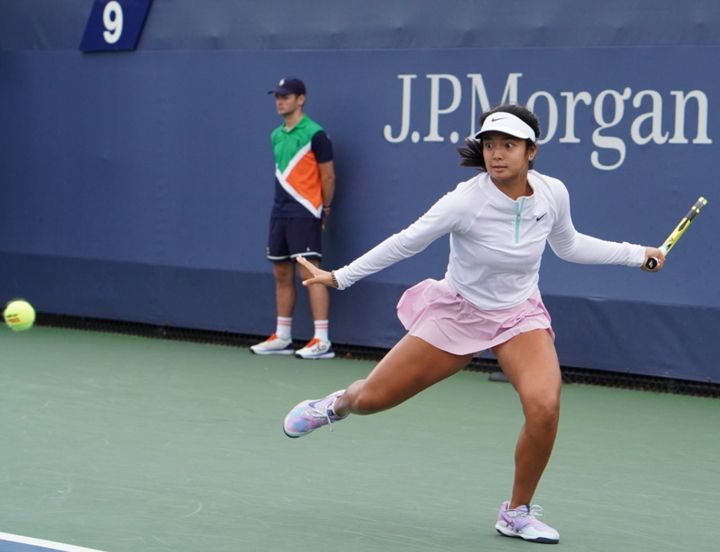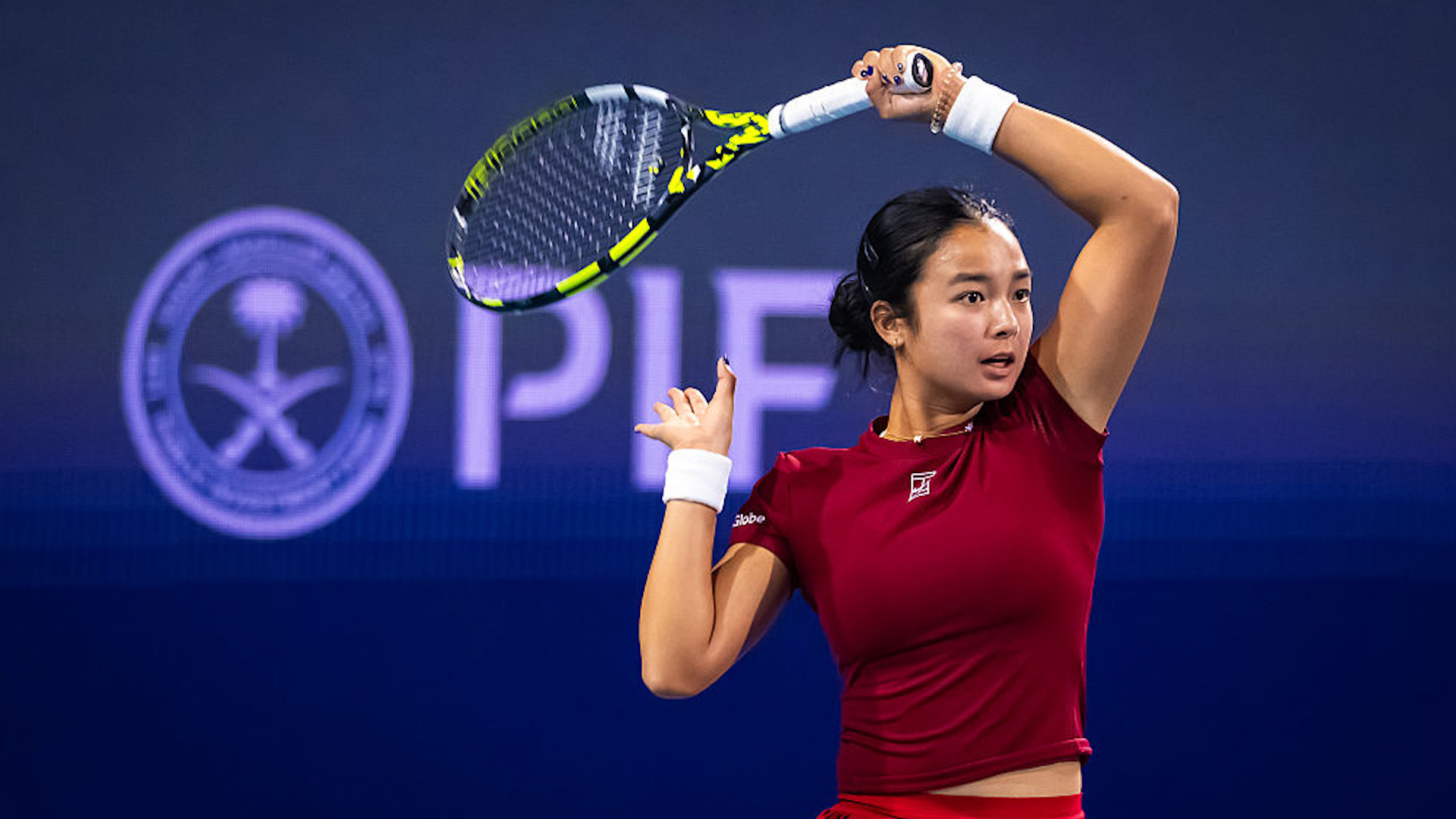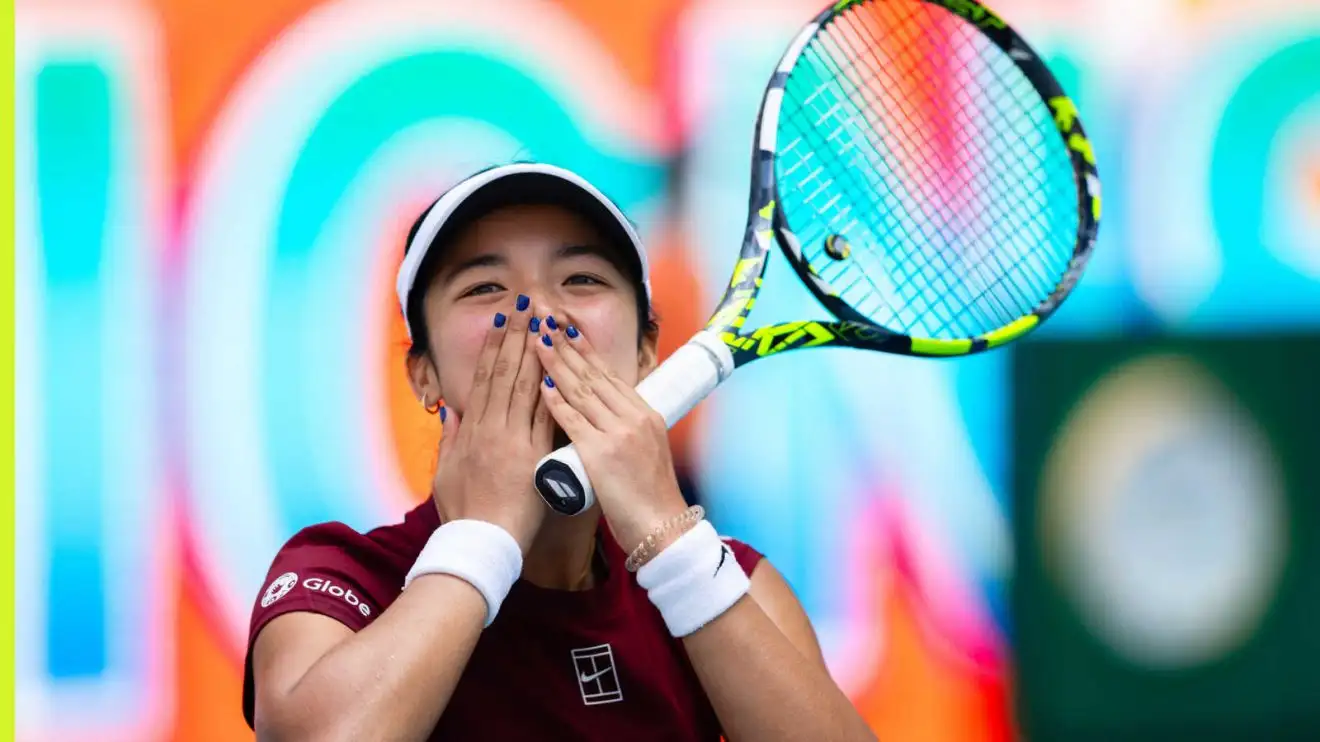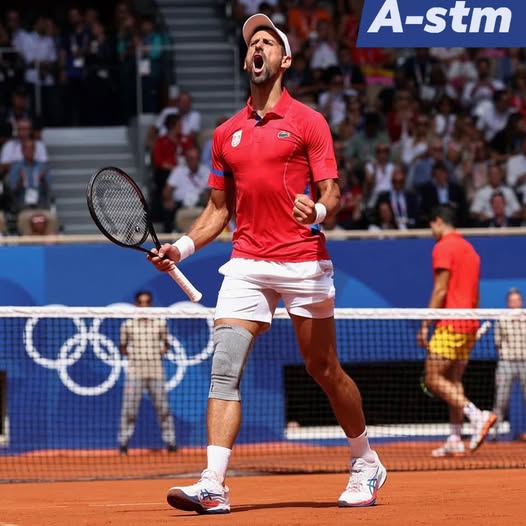On a cloudy spring afternoon in Paris, a new chapter in Philippine tennis history was written—but not with the triumphant script many had hoped. Alexandra Eala, the 19-year-old wunderkind and the pride of Southeast Asia, made her long-awaited senior debut at the French Open, only to fall in a heart-wrenching first-round upset that stunned fans and pundits alike.
The moment had all the makings of a fairy tale: Roland Garros, the clay courts steeped in legends, a teenager breaking national records, and an entire country tuned in to watch her defy odds. But instead, the tennis world bore witness to a different, more sobering story—one of promise still waiting to be fully realized.
This is the tale of Alexandra Eala’s French Open debut—a narrative of high hopes, harsh realities, and a future still bright despite the shadows of early defeat.
The Weight of a Nation: Why This Match Mattered
To understand the gravity of Eala’s debut, one must first grasp the significance of her presence on the court. Born in Manila and trained at the Rafael Nadal Academy in Spain, Eala has long been viewed as a once-in-a-generation talent in Filipino sports. She captured junior Grand Slam titles, broke barriers as a teenager on the ITF and WTA circuits, and consistently carried the Philippine flag at major events.
But her entry into the main draw of the 2025 French Open marked something far greater than personal achievement. It was a historic moment for Philippine tennis—a sport often overshadowed in a nation obsessed with basketball and boxing. Eala was not just representing herself; she was walking onto Court 6 as a beacon for every young Filipino dreaming of Roland Garros glory.
Game Day: A Clash of Fire and Frustration
The buzz around Eala’s match was electric. She was drawn against a seasoned clay-court specialist ranked just outside the top 50—a tough but manageable matchup for the world No. 86, especially given her training on European clay. The first few games showed promise, with Eala holding serve confidently and displaying her trademark topspin-heavy forehand.
But then the tide turned.
Unforced errors crept into her backhand. Her serve, usually reliable under pressure, faltered at critical points. The opponent exploited her court positioning, dragging her side-to-side and forcing Eala into defensive play far too early in rallies.

Despite flashes of brilliance—including a breathtaking 22-shot rally that drew applause from the sparse Parisian crowd—Eala struggled to find rhythm. After an hour and 42 minutes of intense but inconsistent play, the final score read 6-3, 7-5 in favor of the underdog.
Shock. Silence. Disbelief.
What Went Wrong?
Eala’s game is built on resilience, angles, and aggressive topspin—not unlike the style of her mentor, Rafael Nadal. Yet on this particular day, she looked uncharacteristically hesitant. Analysts pointed out three key areas where the match slipped from her grasp:
- Mental Pressure: The enormity of the moment may have overwhelmed her. For someone who has conquered junior Slams and tough ITF opponents, Eala appeared unusually tight and reactive, rather than proactive.
- Shot Selection: On clay, patience is often rewarded. But Eala rushed points, going for winners too early in rallies. Her 28 unforced errors to just 14 winners painted a clear picture of impatience.
- Serve Inconsistency: With only a 49% first-serve percentage and five double faults, Eala handed her opponent too many free points. On a surface that punishes every lapse, this proved fatal.
A Loss, Not a Defeat
To the untrained eye, a first-round loss might seem like a setback. But to those who follow the journey of young athletes, it’s clear this was simply a harsh initiation into the brutal world of Grand Slam tennis. In many ways, this match may turn out to be more formative than any junior title she’s won.
At just 19, Alexandra Eala has years—if not decades—of tennis ahead. History is filled with stories of players who crashed out early in their debuts only to later dominate the sport. Serena Williams lost in the third round of her first French Open. Even Nadal took time to hone his dominance on clay.
For Eala, this match was a mirror. It reflected her vulnerabilities, yes—but also her strengths: a fighting spirit, world-class strokes, and a willingness to compete at the highest level.
The Filipino Spirit: Reactions from Home
In the Philippines, where tennis has long been a niche pursuit, Eala’s performance still captivated a nation. Social media erupted not with criticism, but with messages of support. “We’re proud of you, Alex,” read one trending hashtag. News outlets aired replays and emotional interviews with her family. Former players, celebrities, and even politicians weighed in with praise.
This, in itself, is progress.
A few years ago, a first-round Grand Slam appearance by a Filipino tennis player would have been buried beneath PBA scores or boxing headlines. Now, it’s national news. Eala may have lost the match, but she won something far more enduring: the hearts of millions.
What’s Next for Alexandra Eala?
Eala’s team has confirmed that she will remain in Europe for the summer swing, including potential appearances at Wimbledon qualifiers and more WTA 125K events. Clay may not have rewarded her this time, but the grass and hard court seasons offer fresh opportunities.
More importantly, this match will serve as data—information to dissect, analyze, and build upon. Every loss at this level is a lesson, and Eala has proven she’s a quick learner. Her footwork can be sharper. Her second serve needs more margin. Her mental game must evolve.
And it will.
The Bigger Picture: Why This Matters for Asia and Women’s Tennis
Eala’s debut, while not victorious, carries immense symbolic weight for Asian and Southeast Asian tennis. In a sport where representation still skews heavily toward traditional powerhouses like the U.S., Russia, and Europe, the emergence of a Filipina teenager on the Grand Slam stage is both refreshing and necessary.
Young girls in Manila, Jakarta, Kuala Lumpur, and Bangkok are watching. They see someone who looks like them competing at the highest level, and that changes everything. Dreams suddenly feel attainable. Courts that sat empty for years may now find new life.
That’s the power of visibility. That’s what Alexandra Eala has brought to the sport—even in defeat.

Conclusion: Not the End, But the Beginning
Roland Garros 2025 may not have ended in glory for Alexandra Eala, but its impact will resonate for years to come. This was not a crash—it was a baptism. A young player tested by fire on one of tennis’s greatest stages, only to rise again stronger, smarter, and hungrier.
The tennis world should take note: Alexandra Eala is here. She may have stumbled, but she has not fallen. She may have lost a match, but she’s still playing the long game.
As one Filipino fan poignantly wrote online: “Today we cried, tomorrow we cheer again.”
And cheer we will. Because if this is the beginning, the best is surely yet to come.
🔁 Share Your Thoughts
Did you watch Alexandra Eala’s French Open debut? What were your thoughts on her performance, and what do you think she needs to work on for future Slams? Join the conversation on your favorite social platform with the hashtag #EalaAtRolandGarros.


